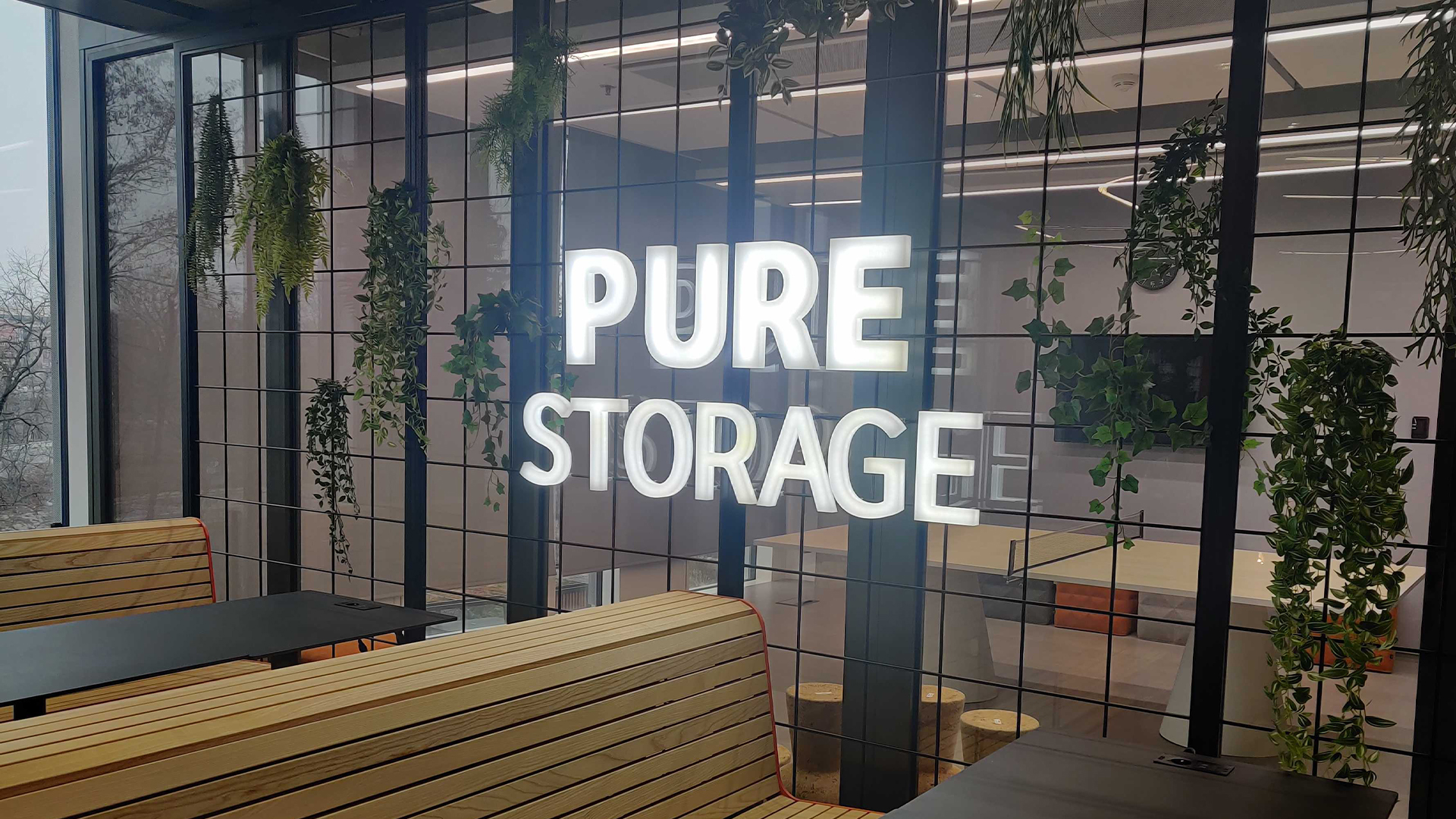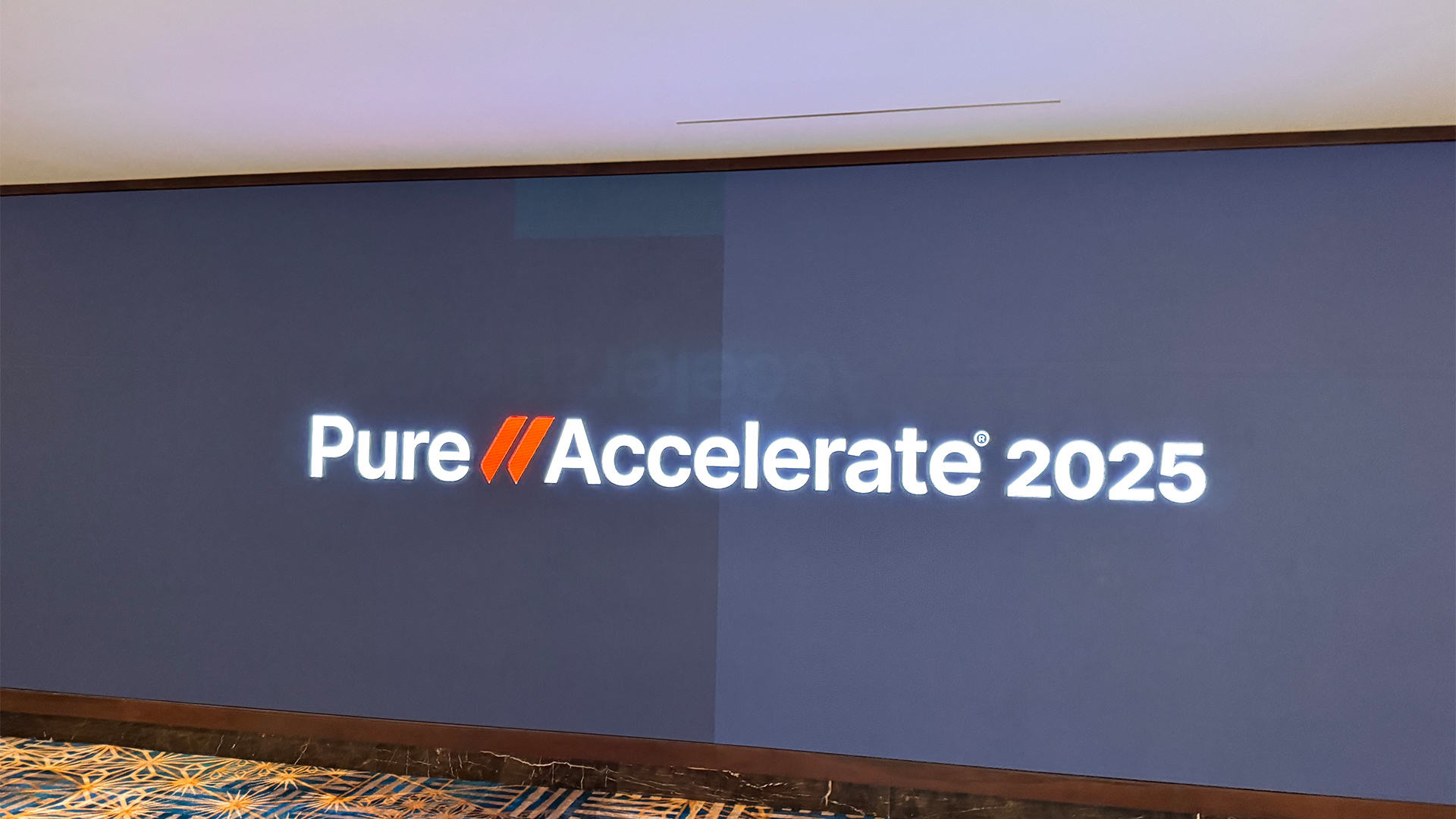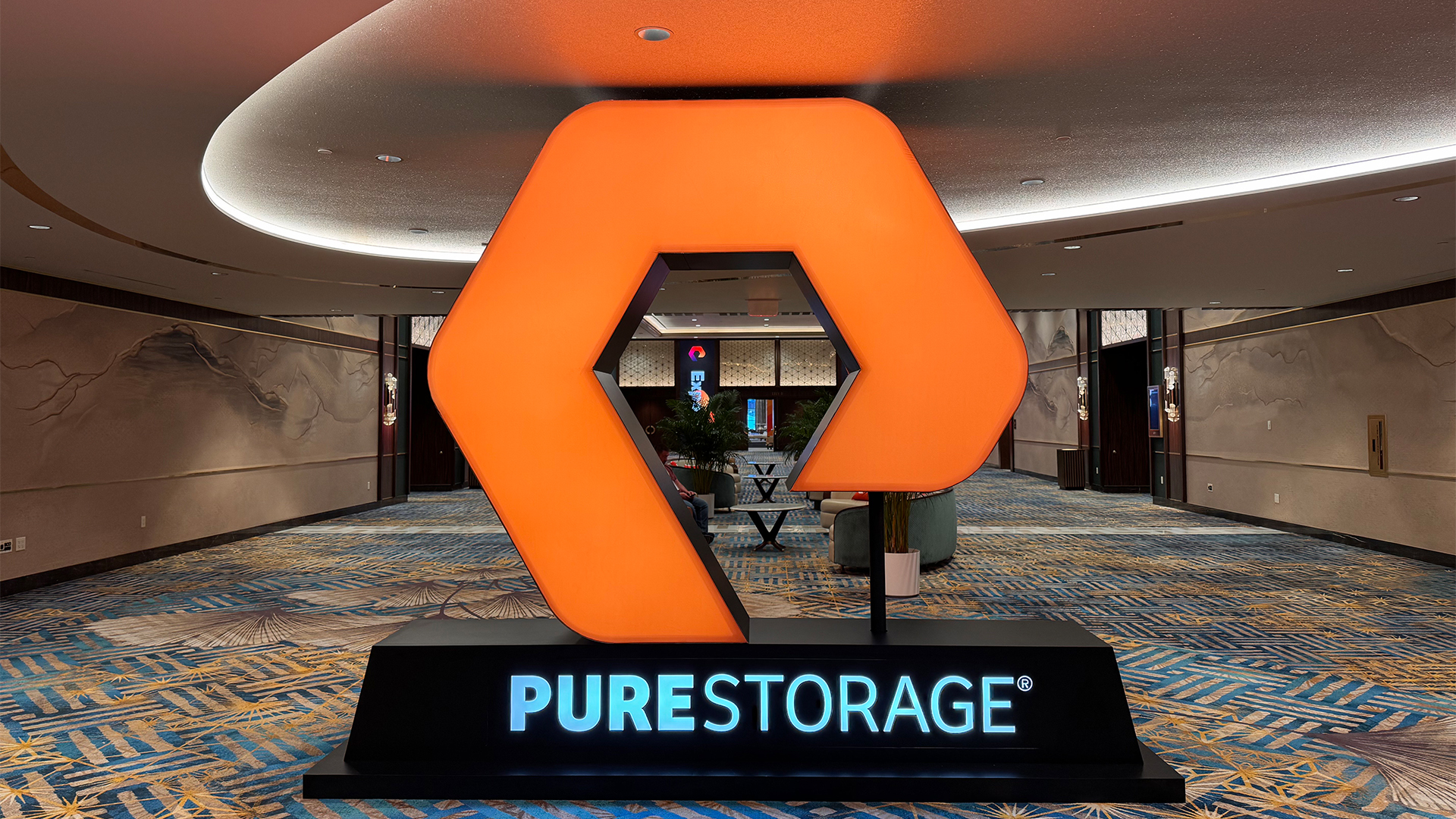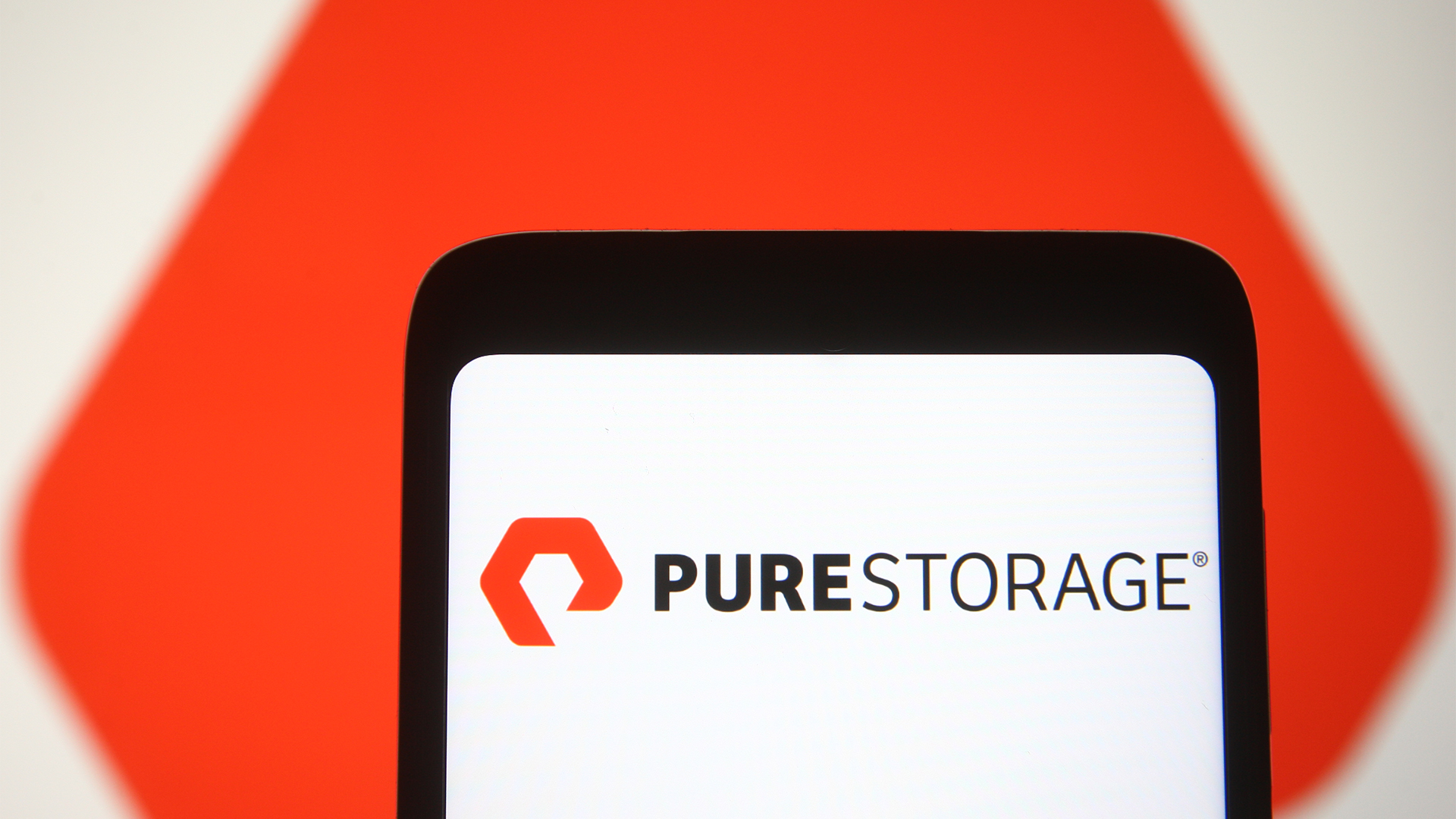Pure Storage's recent hyperscaler ‘design win’ could be the death knell for disk storage
Disk storage’s ubiquity in the enterprise market could be coming to an end


A new licensing deal between Pure Storage and an as-of-yet unnamed hyperscaler could precipitate a transformation in the enterprise storage market, according to Pure Storage CTO Rob Lee.
Flash storage has long been hailed as the successor to its spinning disk counterparts, yet thus far HDDs have clung on in the enterprise market. This could all change, according to Lee.
In November 2024, Pure Storage announced it had reached its first flash storage deal with a hyperscaler.
The hyperscaler in question is set to be revealed “soon enough”, according to Lee, who added this is the first of what the company hopes is a number of similar agreements with the other major industry players.
“We recently announced our first, hopefully, of many design wins with a top four hyperscaler who’s chosen our technology to standardize all of their storage, from their cheapest disk all the way to eventually their highest performance SSDs” he stated.
During an earnings call following the announcement, which caused Pure Storage’s share price to soar, Charlie Giancarlo, CEO at Pure Storage, said the deal could mark a turning point in the market, describing it as “the vanguard for flash storage providing all online storage in major hyperscale environments in the future.”
This could significantly shake up the enterprise storage market, Lee said, noting that the market for disk storage is incredibly concentrated on both the supply and demand side, hinting that one big move from a hyperscaler could have a major effect on the industry as a whole.
Sign up today and you will receive a free copy of our Future Focus 2025 report - the leading guidance on AI, cybersecurity and other IT challenges as per 700+ senior executives
“There’s two suppliers of disks, and 60 to 70% is purchased by the top five hyperscalers. Just let that sink in for a second. So when you have a market that is that concentrated, if one of those buyers flips and stops buying disks and shifts over to flash, you can see what’s going to happen,” he explained.
“I think that’s going to be the biggest catalyst, the biggest nail in the coffin finishing the transition from disk to flash.”
Flash storage could be an unsung hero for decarbonizing hyperscalers
Lee’s comments came during a press tour of Pure Storage’s global R&D center in Prague this week. During a Q&A session, he told ITPro and assembled journalists the factors that brought the hyperscaler to the table included better reliability and performance.
The primary reason, however, focused firmly on the energy savings flash can bring compared to traditional storage methods.

Pure Storage CTO Rob Lee believes flash is the way forward for hyperscalers
Hyperscaler capital expenditure has been growing as they race to dominate the burgeoning AI market, but this has presented major challenges in terms of energy security, Lee noted.
Nearly all of the top hyperscalers now have projects to source clean energy to accommodate for soaring demand, with Google, Microsoft, AWS, and Oracle all signaling their approval for nuclear energy in particular.
RELATED WHITEPAPER

With this in mind, Lee said Pure Storage has been working with hyperscalers over the last two years to both demonstrate and emphasize the benefits of flash storage in data center operations, adding that a single digit decrease in energy consumption could be enough to drive a wholesale transition to flash.
“These guys operate at such a scale that saving 1 or 2% in power overall is a huge needle-mover for them. By uptaking our technology or storage layer, they’re actually going to save more energy than building nuclear power plants.”

Solomon Klappholz is a former staff writer for ITPro and ChannelPro. He has experience writing about the technologies that facilitate industrial manufacturing, which led to him developing a particular interest in cybersecurity, IT regulation, industrial infrastructure applications, and machine learning.
-
 Hackers are using LLMs to generate malicious JavaScript in real time
Hackers are using LLMs to generate malicious JavaScript in real timeNews Defenders advised to use runtime behavioral analysis to detect and block malicious activity at the point of execution, directly within the browser
-
 Developers in India are "catching up fast" on AI-generated coding
Developers in India are "catching up fast" on AI-generated codingNews Developers in the United States are leading the world in AI coding practices, at least for now
-
 What now for enterprise virtualization?
What now for enterprise virtualization?With a trusted partner like Pure Storage, businesses can make the most of their virtualization journey
-
 Pure Accelerate 2025: All the news and updates live from Las Vegas
Pure Accelerate 2025: All the news and updates live from Las VegasKeep tabs on all the announcements at Pure Accelerate 2025 in our rolling live coverage
-
 'This was a very purposeful strategy': Pure Storage unveils Enterprise Data Cloud in bid to unify data storage, management
'This was a very purposeful strategy': Pure Storage unveils Enterprise Data Cloud in bid to unify data storage, managementThe company’s new Enterprise Data Cloud aims to streamline storage and data management
-
 Pure Storage targets partner growth with revamped reseller program
Pure Storage targets partner growth with revamped reseller programNews Pure Storage has unveiled a raft of changes to its Reseller Program as part of a drive to improve partner profitability.
-
 Cloud storage growth set to skyrocket as AI drives data retention needs
Cloud storage growth set to skyrocket as AI drives data retention needsNews Widespread AI adoption is prompting huge investment in cloud storage capacity
-
 The business value of Dell PowerStore
The business value of Dell PowerStoreWhitepaper High-performance storage that can improve performance and reduce operational costs
-
 Built for the future of multicloud - Microsoft Azure
Built for the future of multicloud - Microsoft Azurewhitepaper Built for the future of multicloud - Microsoft AzureFuture proof your infrastructure for a competitive advantage
-
 Pure Storage announces VM assessment service – and it could please beleaguered VMware customers
Pure Storage announces VM assessment service – and it could please beleaguered VMware customersNews The firm unveiled a new tool for managing VM costs as part of its Pure//Accelerate London 2024 event